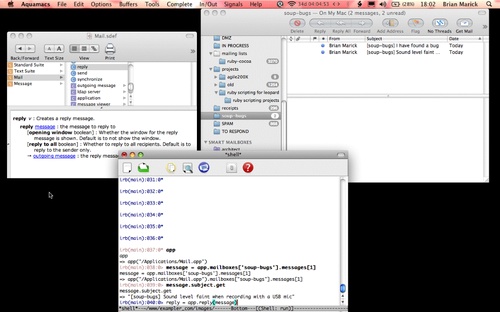Kanban-esque scheduling
Kanban-inspired scheduling is the most interesting idea to come along in a while. Read the links above for a fuller description, but the short version is that there’s a fixed pipe of work items, where each is larger than a traditional story. (As I’ve noted before, small stories compensate for our inability to estimate by shifting work to the product director.) The larger work items, often called “minimum marketable features (MMFs)”, contribute a more satisfying chunk of business value than a small story can.
Rather than scheduling an iteration at the beginning, you just keep the pipe full. When one MMF is done, the product director puts the next one in.
It has an appealing simplicity, and I think it fits in well with Jeff Patton’s recent focus on not letting incremental development squeeze out iterative development. (Jeff thinks so too.)
What worries me is discipline. An iteration is a fairly firm commitment to produce X amount of value in Y amount of time. A MMF is, too, but there isn’t (as far as I understand) any moment when some defined set of MMFs is either done or not done. Their “lifetimes” always overlap. Since the people working on this are savvy, I’m sure they have ways for people to take stock of how they’re doing, whether they’re getting faster or slower, etc. I just don’t know what those ways are, and it’s the only thing keeping me from dipping my toe into the water.


